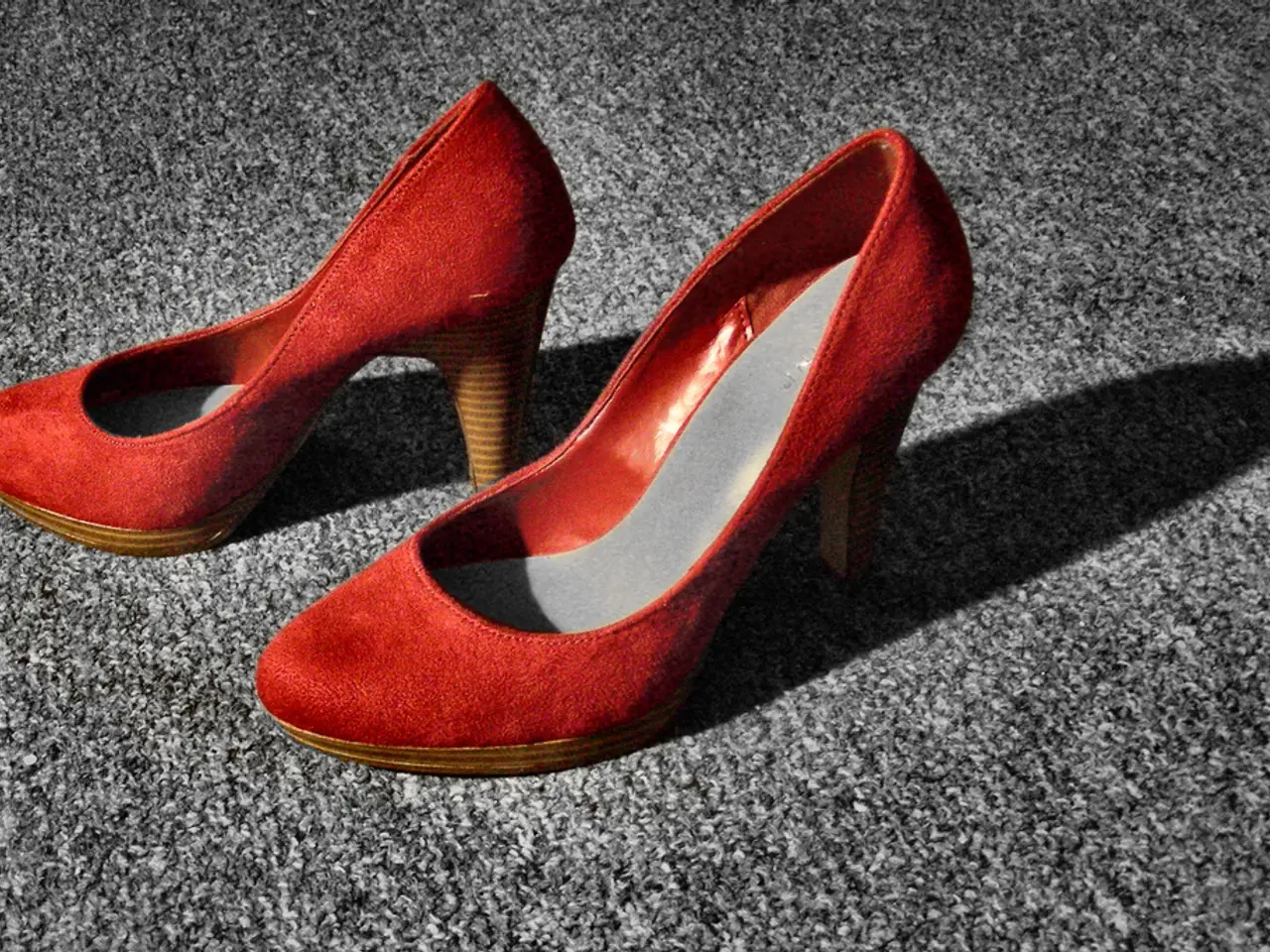Managing Plantar Warts: A Comprehensive Guide
Plantar Warts: Origin, Mitigation Strategies, and Remedies
Plantar warts, a common skin condition caused by the human papillomavirus (HPV), can be bothersome and painful. This article aims to provide a clear understanding of the types, symptoms, causes, and treatments for plantar warts.
Types of Plantar Warts
Plantar warts are categorized into two main types: myrmecial-type and mosaic-type.
- Myrmecial-type Plantar Warts are deep, calloused, and tender to touch. They are often painful, especially when pressure is applied, which can cause discomfort while walking or standing.
- Mosaic-type Plantar Warts are clusters of warts that grow on the surface of the skin. They are generally less painful than myrmecial-type warts and can appear as multiple small, grainy growths.
Symptoms
- Pain: Both types can cause pain, but myrmecial-type warts are more painful due to their deep growth under the skin.
- Appearance: Myrmecial-type warts are singular and deep, while mosaic-type warts are multiple and superficial.
- Location: Both types occur on the soles of the feet or between the toes.
Causes
Plantar warts are caused by the human papillomavirus (HPV), which enters the skin through cuts or small openings. The virus thrives in warm, moist environments like locker rooms and pool decks, making it contagious through skin-to-skin contact or shared items like towels and shoes.
Prevention
To prevent the spread of plantar warts, it's recommended to:
- Wear clean socks every day
- Cover warts with a bandage when swimming
- Avoid sharing towels, washcloths, shoes, or socks with other people
- Wear sandals or flip-flops when walking in a pool area or locker room
- Avoid picking or scratching warts
- Wash hands after touching feet
Treatments
At-home Treatments
For mild cases of plantar warts, over-the-counter treatments such as salicylic acid and freezing kits may be effective. However, they may not be suitable for deep or stubborn warts.
Medical Treatments
For more severe cases, medical treatments include:
- Cryotherapy: Freezing the wart to kill the infected cells.
- Laser Therapy: Using a laser to destroy the wart tissue.
- Immunotherapy: Stimulating the immune system to fight the HPV virus.
- Liquid Medication: Applying a medication to cut off the blood supply to the wart, which is then removed by a doctor after a few days.
Professional Assessment
It is advisable to consult a podiatrist for proper diagnosis and treatment, especially for painful or persistent warts. A doctor may diagnose plantar warts by scraping or cutting off the top layer of the wart to check for black dots, or by taking a swab for laboratory analysis.
Living with Plantar Warts
Plantar warts can lead to complications such as changes in posture, pain in other areas like the knee or hip, and interference with sports activities. If a person has a wart that keeps coming back, their wart is very large or painful, their wart bleeds or changes in appearance, or they are worried about a wart-like growth, they should contact a doctor.
Warts can also lead to embarrassment or teasing, especially among children. If you or someone you know is struggling with plantar warts, remember that there are effective treatments available and seeking professional help can make a significant difference.
- The human papillomavirus (HPV) is the cause of plantar warts, a common skin condition that can cause discomfort while walking or standing.
- Plantar warts can be prevented by wearing clean socks, covering warts when swimming, avoiding shared items, and wearing sandals in moist environments.
- Over-the-counter treatments like salicylic acid and freezing kits may help with mild cases of plantar warts, but deep or stubborn warts may require medical treatments such as cryotherapy, laser therapy, immunotherapy, or liquid medication.
- A podiatrist should be consulted for a proper diagnosis and treatment of painful or persistent plantar warts.
- Mental health concerns, such as embarrassment or teasing due to plantar warts, should be addressed as effectively treating warts can improve a person's confidence and well-being.




